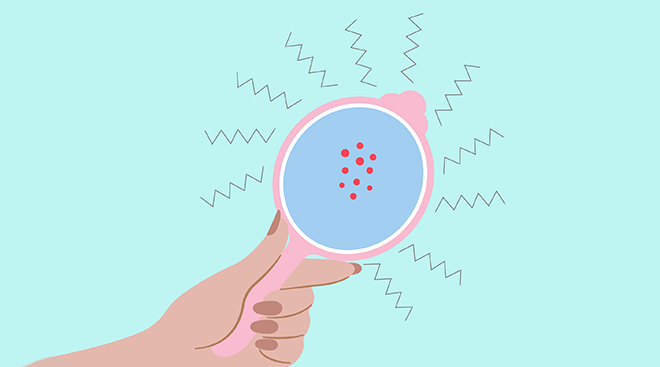10 Ways to Boost Your Mental Health During Pregnancy
You’re super excited about pregnancy and becoming a parent, and then—out of nowhere—you suddenly start feeling a bit low. Don’t worry, Mama, this is totally normal. Pregnancy can be tough on your mood.
As a reproductive psychiatrist (yes, that’s a thing!), I have the privilege of supporting many women during their pregnancies. A lot of factors, like hormonal shifts, sleep disturbances, transitioning to a new identity as a mom, relationship challenges and past depressive episodes, can really impact a woman’s mood during those rollercoaster nine+ months. Fortunately, there are many ways you can boost your mental health during pregnancy.
Please remember that any serious mental health or safety concerns should be brought to the attention of your personal physician immediately. But if you’re just looking for a little mood lift, these 10 tips can help.
We know that yoga is a really powerful tool in managing depression, but some studies have shown that prenatal yoga can help elevate your mood during pregnancy too! Once your doctor gives you the clearance to start prenatal yoga, you may find a regular practice with a more meditative or relaxation-focused approach has a robustly positive impact on your mood. Bonus: Prenatal yoga has also been shown to be beneficial in many cases for improving sleep and anxiety.
When my pregnant patients start to feel down, I encourage them to approach themselves with words of positivity, encouragement and compassion. Start the day with the words “I am amazing,” “I am beautiful” or “I am powerful.” How would doing this change the way you look at yourself throughout the day? Pregnancy can be hard at times, but talking yourself through it by using kind words (“You’ve got this, Mama!”) can be so powerful and help to shift your mindset. Tip: Sometimes the best way to start this practice is by writing a few positive affirmations on sticky notes, putting them on a wall and just reading them aloud once or twice a day until your brain gets used to hearing these words come out of your mouth.
Talk therapy is a powerful tool to help maintain your mood during pregnancy. It helps create a safe, confidential space where you can process any emotions you have about your shifting identity, changing body or other concerns. It can also help you work through any unresolved conflicts from your own childhood or face issues about your relationship with your parents. Also, couples or family therapy can be really crucial for supporting your loved ones during the transition to welcoming a new baby. Note: You don’t need to have a mental health diagnosis in order for therapy to be helpful or effective for you.
Intellectually, we know that our bodies are so amazing to be carrying and nurturing a baby! But emotionally, we might feel something entirely different at times. Gaining weight, developing stretch marks and feeling less energetic are normal and healthy changes that typically occur during pregnancy, but some women struggle when they see these changes in the mirror. I often suggest that my pregnant moms choose their words about their bodies carefully and even practice saying them out loud. For example, looking in the mirror in the morning and saying: “My body feels strong. My body is amazing for housing this little human. I am beautiful just as I am,” can be an exercise in self-compassion and body-positivity. If that feels too difficult, sometimes saying a simple “thank you” to our bodies can be just as powerful.
Pregnancy can be overwhelming and busy, but don’t let that stop you from staying connected to the important people in your life. Our relationships with friends and family are essential to helping us feel supported and maintaining a sense of identity and normalcy during the transition into motherhood. Studies have shown that strong social support during pregnancy is protective against postpartum depression. Although face-to-face time with key people is really wonderful, a quick phone check-in with loved ones can also help boost your mood. Reaching out to other people in your network, like your neighbors, coworkers or religious community, can be really uplifting too—even if it’s just for a quick “hello.”
If you’re partnered during your pregnancy, it’s likely that your other half is also experiencing many emotions about this new life chapter. Checking in with your partner and allowing yourself to have open, honest conversations about how you’re adjusting is important in helping both of you manage your emotions. It could also help create a deeper level of closeness and connection through this transition. Another reason to check in with your partner? Depression doesn’t just impact moms; we have found that at least 10 percent of dads will develop postpartum depression after baby is born. Being able to have real conversations can help you both identify when one of you is struggling and might need additional support.
Although studies have been mixed, there is data that supports the notion that exercise enhances your mood during your pregnancy—once your physician gives you the go ahead, of course. There is no consensus on the exact level of exercise intensity or frequency needed for a mood boost during pregnancy, but we do know that getting some exercise will generally help elevate your mood, protect against depression and instill a greater sense of overall well-being. A lot of my pregnant patients who get the all-clear to exercise find that adapted versions of their prior gym routines (or even a walk in nature!) can kick those endorphins into gear and improve their mood.
If you haven’t already, ask your doctor about starting prenatal vitamins. Data shows that consistently taking folic acid even prior to conception (and, of course, during pregnancy) can be protective of your mood. The good news is that folic acid is typically found in most prenatal vitamins anyway, because it’s known to protect baby’s healthy development. Other important vitamins frequently found within your prenatal vitamin that may support your mood and energy levels while protecting baby’s development include omega-3 fatty acids, vitamin D and iron.
It can be so challenging to get good rest, especially as your pregnancy progresses, and you might find yourself feeling frustrated that you’re not as energetic as you were before. While rest is essential to ensuring the well-being of both Mom and baby, it’s hard to get comfortable in your bed, and you may be waking up repeatedly to use the bathroom. Research shows that your sleep pattern (such as the amount of time you spend in REM sleep) may shift as part of the physiological changes that happen in pregnancy. But we know that adequate sleep and feeling well rested are key to a healthy mood, so I often encourage my pregnant moms to get rest when they can, even if they have to squeeze in the occasional daytime nap.
This is a very personal decision and one that definitely requires a discussion with your physician. Together, you and your doctor may determine that there is a medical need to start or continue taking antidepressants during pregnancy. This decision involves weighing the risks of under-treated depression against the risks of an antidepressant; many doctors approve of patients continuing with an antidepressant if it helps to maintain a mother’s healthy mood. Increasingly, research shows that antidepressants in pregnancy may be safer than uncontrolled prenatal depression and anxiety.
Although many people imagine that pregnancy will be the happiest time of their lives, there can be low periods mixed in with the bliss—and that is absolutely normal. Having a self-care strategy in place to nurture your mental health during pregnancy is key in many ways, but professional help is also there if you need it. Remember, taking good care of yourself is also taking good care of baby!
Please note: The Bump and the materials and information it contains are not intended to, and do not constitute, medical or other health advice or diagnosis and should not be used as such. You should always consult with a qualified physician or health professional about your specific circumstances.
Plus, more from The Bump:
Dr. Aparna Iyer is a board-certified reproductive psychiatrist in Frisco, Texas. She is a speaker and writer on mental wellbeing, especially during pregnancy and postpartum. Find her on Instagram.
BMC Psychiatry, Yoga for prenatal depression: a systematic review and meta-analysis, February 2015
The Journal of Maternal-Fetal & Neonatal Medicine, Maternal social support, quality of birth experience, and post-partum depression in primiparous women, March 2017
Journal of Affective Disorders, What do dads want? Treatment preferences for paternal postpartum depression, June 2017
Birth Issues in Prenatal Care, Effects of exercise-based interventions on postpartum depression: A meta-analysis of randomized controlled trials, September 2017
Journal of Clinical Sleep Medicine, Changes in Sleep Characteristics and Breathing Parameters During Sleep in Early and Late Pregnancy, July 2018
Journal of Affective Disorders, Maternal depression during pregnancy alters infant subcortical and midbrain volumes, August 2021
Learn how we ensure the accuracy of our content through our editorial and medical review process.
Navigate forward to interact with the calendar and select a date. Press the question mark key to get the keyboard shortcuts for changing dates.




















































